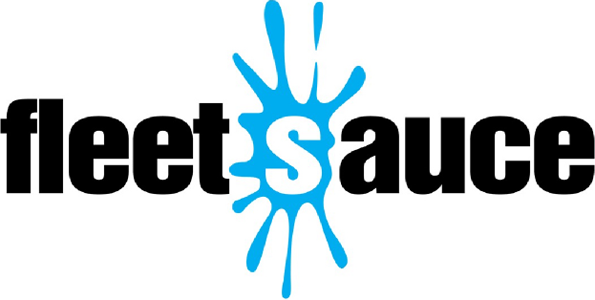
The Importance of Licence Checking

(Posted on 10/08/17)
Ensuring employees hold valid driving licences is vital for the compliance of a fleet – and not doing so can have serious consequences. Ben Rooth reports.
Regular driving licence checks should form a key part of any health and safety policy at a company where employees drive on business.
These should uncover whether the member of staff is entitled to drive the type of vehicle they are allocated, and that they hold a current driving licence.
Asking drivers is not enough: a recent RAC Insurance survey found that 25% of motorists surveyed who already had penalty points did not inform any organisation when they received them, while only 13% would tell their employer if they incurred any. The fact that employees could be driving for work when – in short – they shouldn’t, presents a potential legal minefield.
John Pryor, chairman of fleet operators’ association ACFO, says: “When it comes to licence checking, best practice invariably means knowing precisely who’s driving your vehicles and that those individuals are fully permitted to do so.
“In my experience, some fleets carry out detailed checks and others decide that this isn’t such a great priority for them. Ultimately, it comes down to whether a company is prepared to stand up in court and defend the procedures that they have in place if the worst case scenario occurs.”
Pryor adds that the ability to carry out checks on driving licences online – either yourself or by using a third-party – means that there is now “no excuse” for not having a protocol in place that works for the benefit of both the driver and the organisation they work for.
Here, we look at eight key facts every fleet should know about licence checking.
1 - It’s an offence to permit staff to drive without a licence
“The Road Traffic Act 1988 states that as well as it being an offence for a driver to drive without a valid licence, it is also an offence for a person to permit a driver to drive without a valid licence,” says Martin Evans, managing director of fleet management software company Jaama.
“The only way an employer can be absolutely certain that a member of staff can legally drive, and specifically the number of endorsement points they have on their licence, is to carry out checks against the DVLA database themselves or engage a third party agency.
“Employers, therefore, have a duty to check the validity of employees’ driving licences both on recruitment and periodically thereafter – and at least annually.”
Evans adds employment contracts should indicate that drivers must report driving offences to their employers immediately so full records are maintained.
And for fleets with larger vans, licence checks can ensure that employees are legally entitled to drive vehicles with a gross vehicle weight of more than 3,500kg.
Employers also have a duty of care to employees under health and safety
legislation for on-the-road work activities.
The Health and Safety Executive’s (HSE) Driving at Work guide stresses employers’ responsibilities under the Health and Safety at Work Act 1974 to ensure “so far as reasonably practicable” the safety of all employees while at work.
2 - A robust system can be a legal defence
While a company found guilty of allowing an ‘unlicensed’ or ‘improperly licensed’ employee to drive on its behalf could face a fine of up to £1,000, most employers will be far more concerned about the possibility of prosecution under the Health and Safety at Work Act 1974.
Revised sentencing guidelines introduced last year have increased the levels of fine to severely punish those organisations who flout the law.
Richard Brown, managing director of compliance company Licence Check, says: “Here, fines can range from £180,000 to £20 million according to an organisation’s size and level of culpability.
“As with any legal defence, documented evidence of the checks made and the steps taken to address specific and identified risks is critical.
“For optimum protection, it’s therefore important to make sure that repeated checks are carried out where risk demands this, and that any published policies and guidance are issued to employees and audited to ensure continuing compliance.”
Brown adds that the Health and Safety Executive’s Driving at Work: Managing Risk Related Road Safety document makes clear that the obligations to ensure the safety of employees “who might be affected by work related driving” rests squarely on the shoulders of the employer – irrespective of vehicle ownership.
“They must properly assess the risks as part of their statutory obligations and must ensure that employees are suitably qualified to use the vehicle and that the vehicle itself is safe and reasonably fit for the intended purpose,” he says.
“Where particular risks – in the form of a poor driving record or missing or expired entitlements – are identified following a driving licence check, the employer must be seen to have taken steps to remedy this in the shape of remedial or additional training.”
3 - Fleets can carry out one-off checks on drivers
Since June 2015, fleets in possession of a driver’s mandate have had instant online access to the DVLA’s up-to-date Share Your Driving Licence system.
This allows the driver to generate a code using their driving licence number and National Insurance number which enables an employer to access their penalty point information and details about the vehicles that can be driven on one occasion only.
This service involves both the driver and employer logging into the service every time a check is performed.
Another option is for the driver to download and complete a form authorising the checks before posting it back to the DVLA with a cheque or postal order for £5.
Richard Payne-Gill of the Association for Driving Licence Verification says that these “one-off checks” remain both intensive due to its reliance on manual procedures, and a serious compliance risk if drivers fail to declare points or bans between checks.
He recommends regular checks of at least a year, increasing for staff with more points on their licence.
4 - Data protection laws must be respected
Information contained within driver records is classed as personal data and use of this data is clearly defined by the Data Protection Act 1988 and the pending updated General Data
Protection Regulations.
Consequently, employers and any licence checking agencies acting on their behalf have to obtain a driver’s informed consent, known as a mandate. Accessing a DVLA record without this consent is a fineable offence.
Richard Brown, of Licence Check, says: “Ensuring informed consent is important and will become even more so when the new regulations come into effect next May due to increased levels of fine.
“Although most employers appreciate the need to secure permission from the employee, too many risk prosecution by failing to record the fact that consent has been given. It’s tempting to just get verbal permission, or view the licence online without bothering to get a share code from the DVLA. The problem is if the driver later reports the employer to the Information Commissioner’s Office, there is no evidence to defend the case.”
Richard Payne-Gill, deputy chairman of the Association for Driving Licence Verification, adds all ADLV members are subject to a strict code of practice.
He says: “When a fleet uses the licence checking services of an ADLV member, they’ve got peace of mind that licence data is consistently controlled, monitored and secure at all times. In addition, we require each member to commit to obtaining full certification throughout their business of the international standard of ISO27001:2013 to reduce risks associated with data security.”
5 - Regular checks are imperative
Many organisations carry out licence checks once a year for drivers with a clean licence and increase the frequency if the employee is deemed to be at higher risk.
This might be because they’ve already accrued penalty points and endorsements, or shown that they have a higher accident rate, drive high mileages, are inexperienced behind the wheel or are an older driver.
Malcolm Maycock, managing director of Licence Bureau, says: “The law is unclear about the regularity of licence checks.
“The advice from the Traffic Commissioners is to undertake checks quarterly and accreditations such as the Fleet Operators Recognition Scheme (FORS) or the Freight Transport Association (FTA) state a minimum of six monthly and even more frequently for drivers working in high-risk environments.
“The new fee of 70p (per online DVLA licence check) means we advise clients to follow the Traffic Commissioners’ guidelines.”
He adds: “A driver will usually lose their licence or the categories of vehicles they can drive because of convictions, health or age.
“Regular checks for those with more convictions are therefore essential.”
Ashley Sowerby, managing director of fleet management software company Chevin, adds: “Typically, we advise that checks should be carried out at least once a year for drivers with a clean licence.
“Nonetheless, this frequency should be augmented based on multiple parameters such as their date of birth, annual mileage, accident rate, penalty points and endorsements accumulated. This will allow a relevant frequency appropriated to potential risk.”
6 - Checking can only be carried out online
The DVLA’s online system has revolutionised the speed and ease with which licences can be checked.
John Pryor of ACFO explains: “Going online has improved a fleet’s ability to keep on top of licence checks. In the past, a driver used to have to bring a copy of their counterfoil. In theory, it was possible for a driver to present a doctored photocopy of their licence when it wasn’t free from penalty points.”
Also, fleet managers responsible for drivers based offsite no longer have to wait for documents to arrive by post.
Ashley Sowerby, managing director at Chevin, adds: “Automated licence checking software enables companies to carry out multiple checks for hundreds of drivers in one go. This slashes the administrative burden of manual checking while ensuring full compliance with data protection laws.”
7 - Licence check data can shape a risk strategy
Data garnered from licence checks can be invaluable when developing a risk management strategy.
“Data-led risk profiling can offer great value in helping reduce the likelihood of accidents occurring,” says Ashley Sowerby of Chevin. “Identify drivers that represent the highest and lowest risk based on the type of endorsement they received and the number of penalty points they accumulate. Then, combining that information with other data in fleet management software packages, such as age, experience, training, accident rate, licence history, behaviour scores drawn from telematics data, fuel economy, mileage and more, it’s possible to create profiles with a risk score.”
Aggregated information from across the driver pool can also prove instructive, adds Richard Brown of Licence Check.
“A higher incidence of speeding convictions than might be expected given the size of the driver pool could indicate that a speed awareness course or training is required to effectively address a wider problem,” he says.
8 - Benefits and drawbacks of outsourcing licence checking
Advantages:
Specialist knowledge and expertise: outsourcing companies will have a great deal of experience that can be drawn upon by customers. This covers the provision of general information, the effects of changes in legislation and policy guidance and support.
Management and reporting: in the case of hosted services, there will be software specifically designed to provide automated warnings, notifications and re-checks at scheduled times, and a full range of management reporting tools.
Risk based profiling and checking: those drivers identified as high risk and/or vocational can be checked more frequently.
Legal compliance with a robust audit trail: A managed service will help to ensure that all necessary tasks are completed promptly and provide a clear audit trail in the event of pending prosecution or other legal action.
Security: where the licence checking agency is a member of the Association for Driving Licence Verification (ADLV) they are required to have ISO 27001 security certification as well as an annual external test against unauthorised system penetration.
Links with other fleet and HR applications and services: a licensed service provider will often have other services to offer or can provide links to other employee management software.
Disadvantages:
Cost: There is a cost associated with hiring the services of a licence checking company, while the DVLA’s service is free. However, the DVLA’s service doesn’t provide additional services such as reporting, ongoing management warnings, reminders and automatic re-checking – all of which takes time and therefore cost money.
Data protection: although ADLV members have to carry ISO 27001 security
certification, not all third-party licence checking companies are ADLV members. Consequently, the security of employee data remains a concern to some customers.
Training: there is frequently a training requirement for employees to learn how to use the licence checking service.
Switching supplier: it is important from the outset to ensure that the contract allows a fleet to withdraw from the service or switch to another supplier relatively easily should the need arise.
Source: FleetNews
 Expert Advice
Expert Advice  Competitive Prices
Competitive Prices Road Tax & Roadside Assistance
Road Tax & Roadside Assistance Free National Delivery
Free National Delivery Full Manufacturer’s Warranty
Full Manufacturer’s Warranty





